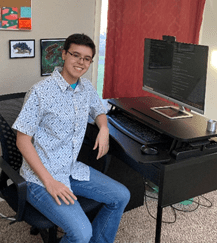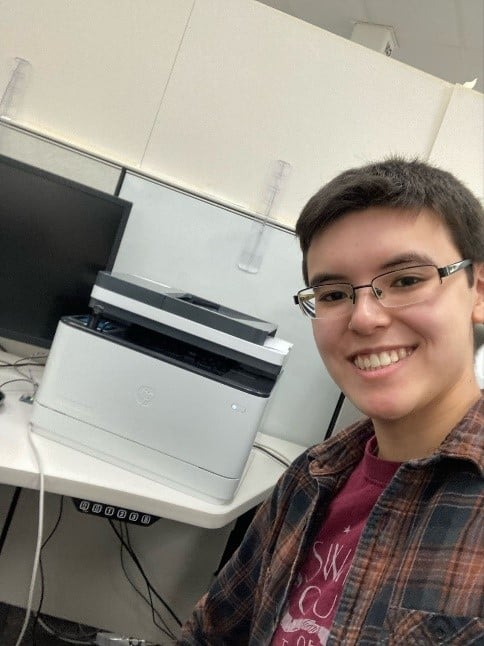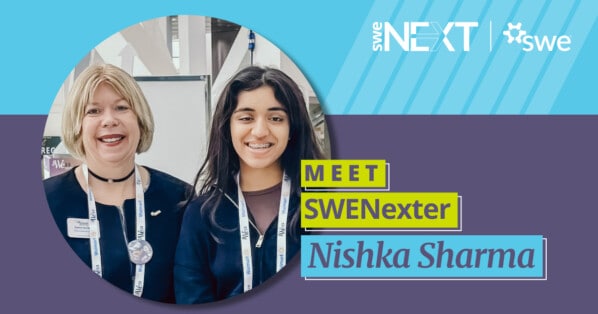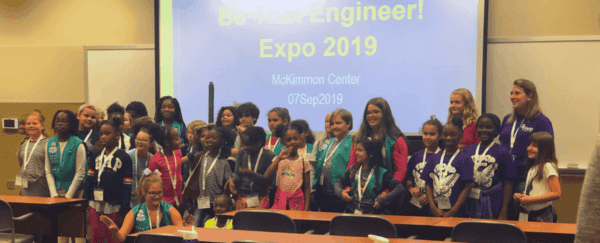
Both my parents are engineers. When I was little, there were usually many half-opened computers and other gadgets scattered across the floor of my parents’ office. Sometimes, I would sit with a screwdriver and open one myself. I guess I just got hooked on the feeling of taking something apart to see how it works. It was like uncovering a secret between me and the machine.
When I was in high school, I joined a robotics team and enrolled in an introductory course in computer programming, which further fueled my love for creating new things. Putting my experiences at home and school together, I decided I would study engineering.
In college, I learned that I could build my own computers and machines. It completely blew my mind. I knew I had to become a computer engineer.
I have a bachelor’s degree in computer engineering from Lehigh University. My degree included electrical engineering and computer science coursework. I’m proud to have graduated with high honors in a major that I found, at times, pretty challenging.
For my senior design project, I built an intelligent smart phone app, which allowed you to take a picture of a food and then using artificial intelligence, could tell you what type of food it is. I also interned at a few companies, including IBM, Lockheed Martin, and Raytheon BBN Technologies. Some of my favorite experiences working as an intern included doing research into artificial intelligence and cyber security.

Looking back, my favorite project that I’ve completed during my career was a college project where I designed the hardware for a computer’s central processing unit (CPU). A CPU, or processor, is the brain of a computer. It makes decisions and instructs the other components of the machine on what to do.
I was very proud of this project because it felt like the final culmination of my knowledge in computer engineering. From the 1’s and 0’s running through a circuit to finally opening up a webpage, I felt like I could see the process from beginning to end. That was pretty awesome for me.
What does a computer engineer do?
Currently, I work in the field of computer engineering as a Firmware Engineer at HP. I develop features that connect printers to the Cloud. In modern computing, connecting devices to the Cloud allows them to make more complicated decisions while staying lightweight for users.
My team works in research and development (R&D), which is exciting because we bring ideas into reality. Sometimes, the projects we work on are just experiments into new technology, and sometimes, they are fully developed features. The results of these projects get used by millions of customers.
The field of computer engineering lies in the intersection between electrical and software systems. Likewise, I use my skills in both electrical and software engineering every day at my job. Most of my days include writing new functions as code for the printer, testing them on hardware, and fixing bugs that may come up. Additionally, I will often meet with other engineers to discuss progress in our current projects, design decisions, and stumbling blocks we might have.

My favorite thing about working as a computer engineer is the opportunity to constantly learn. There are always new technologies to explore. Also, science and engineering are constantly advancing. Even in a field that you might have worked in for decades, you will never stop learning. I’m excited that I work in a career that will never stop surprising me.
My advice for girls and other young students interested in engineering is that all engineers find engineering challenging. If they don’t, they will at some point in their lives come across a problem that isn’t so easy to solve. Don’t panic. Sometimes it’s easy to be daunted and think “I can’t do this…”
However, in my experience, just a little extra confidence and persistence is often what ultimately gets you through. Trust that you will get to the end, one way or another. Also, don’t be afraid to ask for help.
About the Author
This interview was compiled by SWENext Programs Committee Publications work group member Kristine Loh. Kristine is a PhD student in Chemical Engineering at the University of Minnesota – Twin Cities and the “Day in the Life” reporter for the high school SWENext newsletter. She graduated from Drexel University in 2020 with her bachelor’s in Chemical Engineering and her master’s in Materials Science and Engineering.
Author
-

SWE Blog provides up-to-date information and news about the Society and how our members are making a difference every day. You’ll find stories about SWE members, engineering, technology, and other STEM-related topics.






